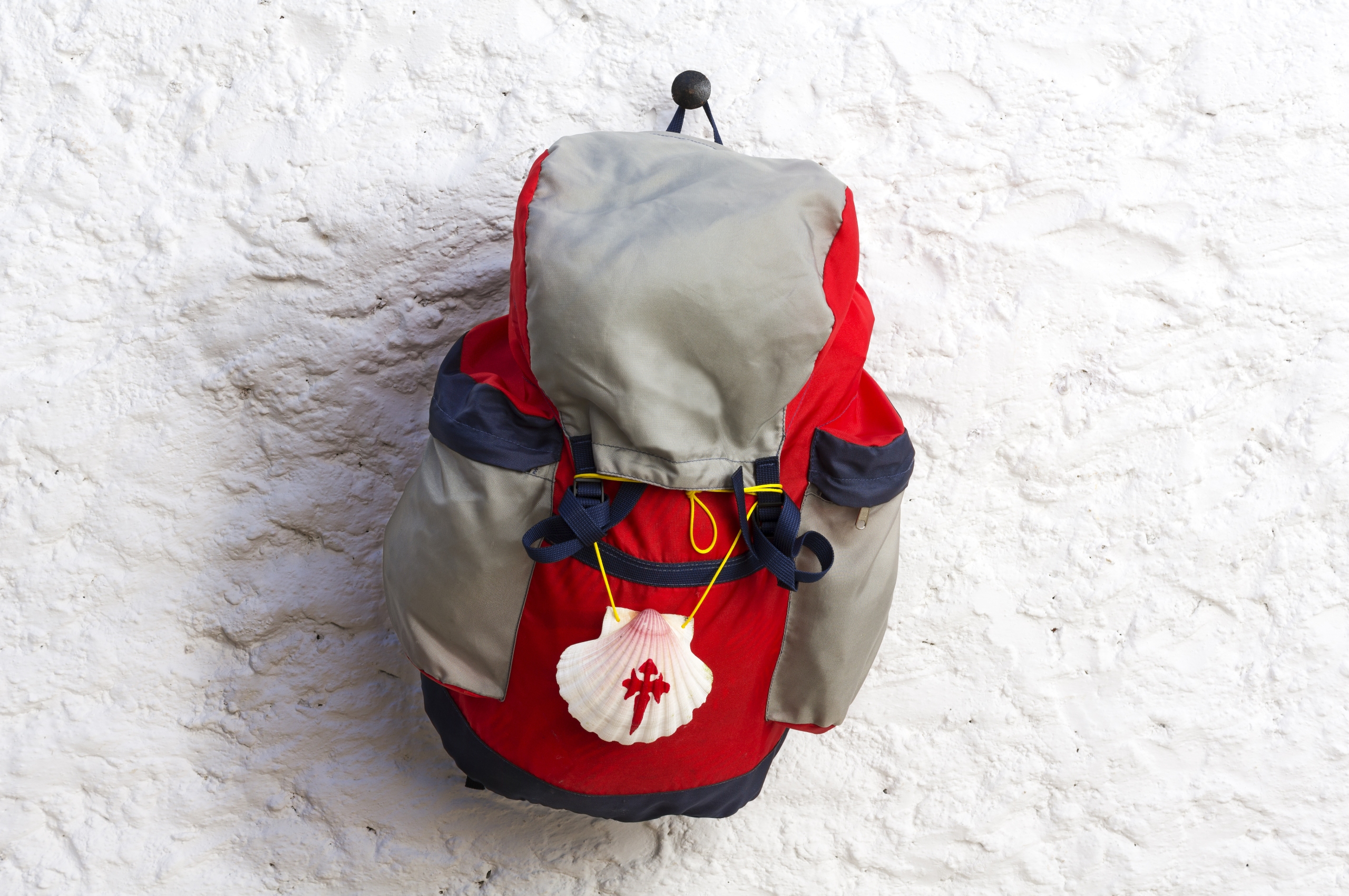What we carry on our backs says more than we might think. Every pilgrimage is its own story—and so is every backpack. Inside that small space, we pack choices, fears, needs, and projections. More than clothes and supplies, we carry fragments of ourselves.
Each item has a weight—literal and symbolic. Some travelers begin with too much. Others start with too little. Some realize too late they’ve left out the essentials. And some refuse to let go of what no longer serves them. Much like in life.
What Do We Carry?
Packing for a long walk forces decisions. Do you take the extra jacket? Is your favorite book worth the 300 grams? What if it rains for days—or not at all?
Experienced pilgrims understand: it’s less about what to take and more about what to leave behind.
We pack what we think we’ll need. Often, we’re wrong. So, along the way, we start making space. We shed shirts, spare chargers, second pairs of shoes. Each object left behind becomes an act of freedom.
We do something similar in life—holding onto things, people, expectations that don’t support our wellbeing or growth. We cling to memories that slow us down, inherited fears, quiet frustrations, ambitions that don’t reflect us, or ideas of perfection that don’t fit.
The Weight of Meaning
Psychiatrist Viktor Frankl, who survived the Nazi concentration camps, often quoted Friedrich Nietzsche:
“He who has a why to live can bear almost any how.”
A pilgrim with a purpose doesn’t stop for blisters. They don’t turn back at the first cramp. They keep walking—because the destination matters.
On the road and in life, the heaviest burden is not the pack on your back. It’s the absence of meaning.
Walking without a reason makes every stone feel like a mountain. Living without direction turns every day into an uphill climb. What we need is a reason—however small, however uncertain. A person to honor. A wound to heal. A promise made to oneself.
Frankl saw this in its most extreme form: in the camps, those who survived often did so because they held onto something—someone to return to, a book left unfinished, an idea that still mattered.
Protection, Not Armor
A backpack should shield, not stifle. It should keep you dry, not crush your lungs under excess weight.
You need a poncho, yes. A torch. A water bottle. But not your entire wardrobe.
In life, many people build armor—emotional defenses, layers of cynicism, protective shells of perfectionism. Then they wonder why they feel numb. But you can’t touch the sky when you’re covered in steel.
On the trail, those who carry too much often walk hunched, shoulders tight, gaze lowered. Walking freely is an act of trust. Letting go takes courage—responsible courage.
The Things That Matter
After days on foot, you realize how little you truly need. A solid pair of shoes. Water. Shelter. Plain food. Someone to talk to. Something to believe in.
Life, at its core, isn’t so different.
In a world that urges accumulation—objects, achievements, digital approval, credentials, square footage—the path teaches us to simplify. To choose only what fits. What is enough. What makes us light.
The Moment You Let Go
Every pilgrim has a moment when they stop and say, “I don’t need this anymore.” They leave an object behind. Or a fear. Or an outdated version of themselves. And they move on.
It’s a quiet gesture—but it shifts everything.
We all reach that moment in life. A day when we realize we can’t carry everything. That we don’t have to. That it no longer makes sense.
And so we leave something behind—a relationship, a job, a mask, a role, a guilt. Then we continue. More grounded. More aware. More human. Fragile and strong, both.
Walking Is Choosing
Every step is a decision—to continue, to pause, to turn back, or change course. The backpack reminds us that every choice has a weight. That everything we carry takes up space—and limits what else we can bring.
Life is no different. Every yes is also a no. Every responsibility a boundary. Every habit a form of destiny.
But choosing remains one of our greatest freedoms.
Not everyone walks on foot. But everyone, eventually, undertakes a kind of inner pilgrimage—a crisis, a loss, an ending, a birth, a diagnosis. A threshold.
And we find ourselves repacking. Asking what to bring into the next chapter. Who to be now.
This is when the symbolic journey matters. This is when we learn how to lighten the load without emptying ourselves. To protect without retreating. To carry what is truly needed.
Every Backpack Is Different
There is no perfect backpack. Only the one that fits you, right now.
When a pilgrim returns home, the pack is lighter. But the heart is fuller.
They’ve learned to tell the difference between what is useful and what is merely urgent. Between what’s essential and what’s optional. And above all, they’ve learned that life is not a contest to carry the most—but a practice in carrying the right things, well.
And you? What’s in your backpack?
Ask yourself today: what are you carrying out of habit, fear, or the need to please? What could you let go of—not with bitterness, but with gratitude?
Walking light doesn’t mean walking empty. It means carrying only what helps you reach where you truly want to go.





